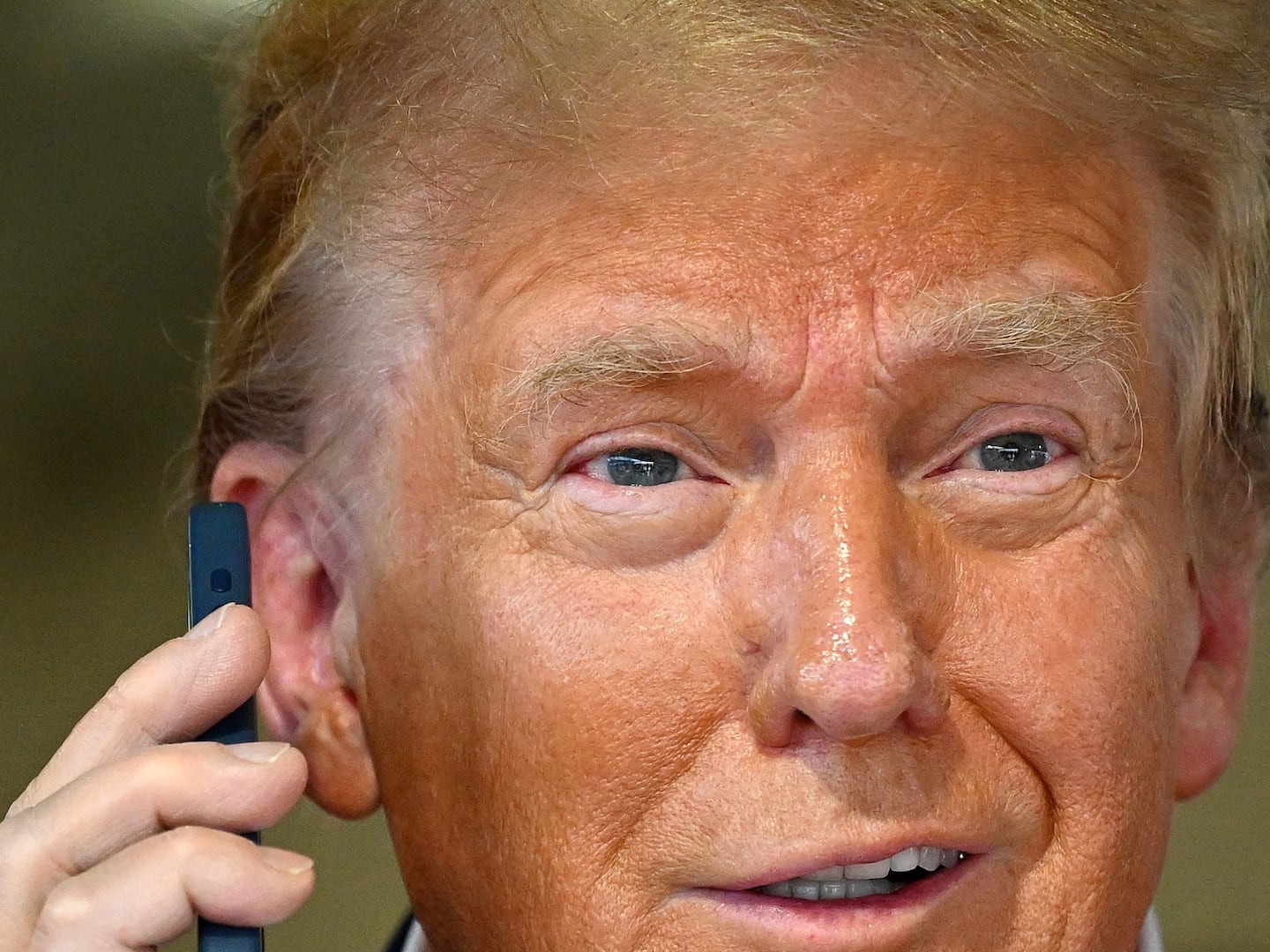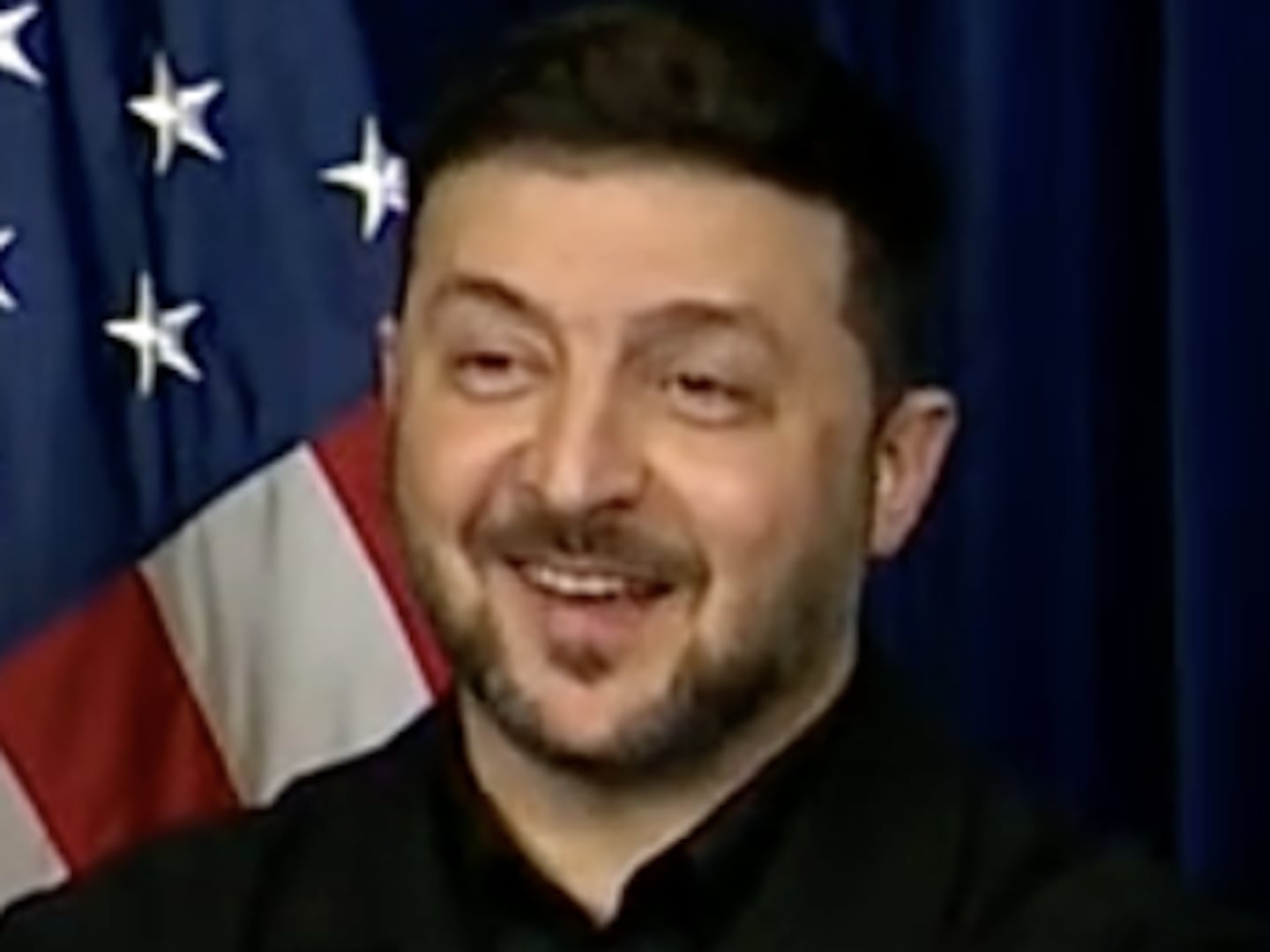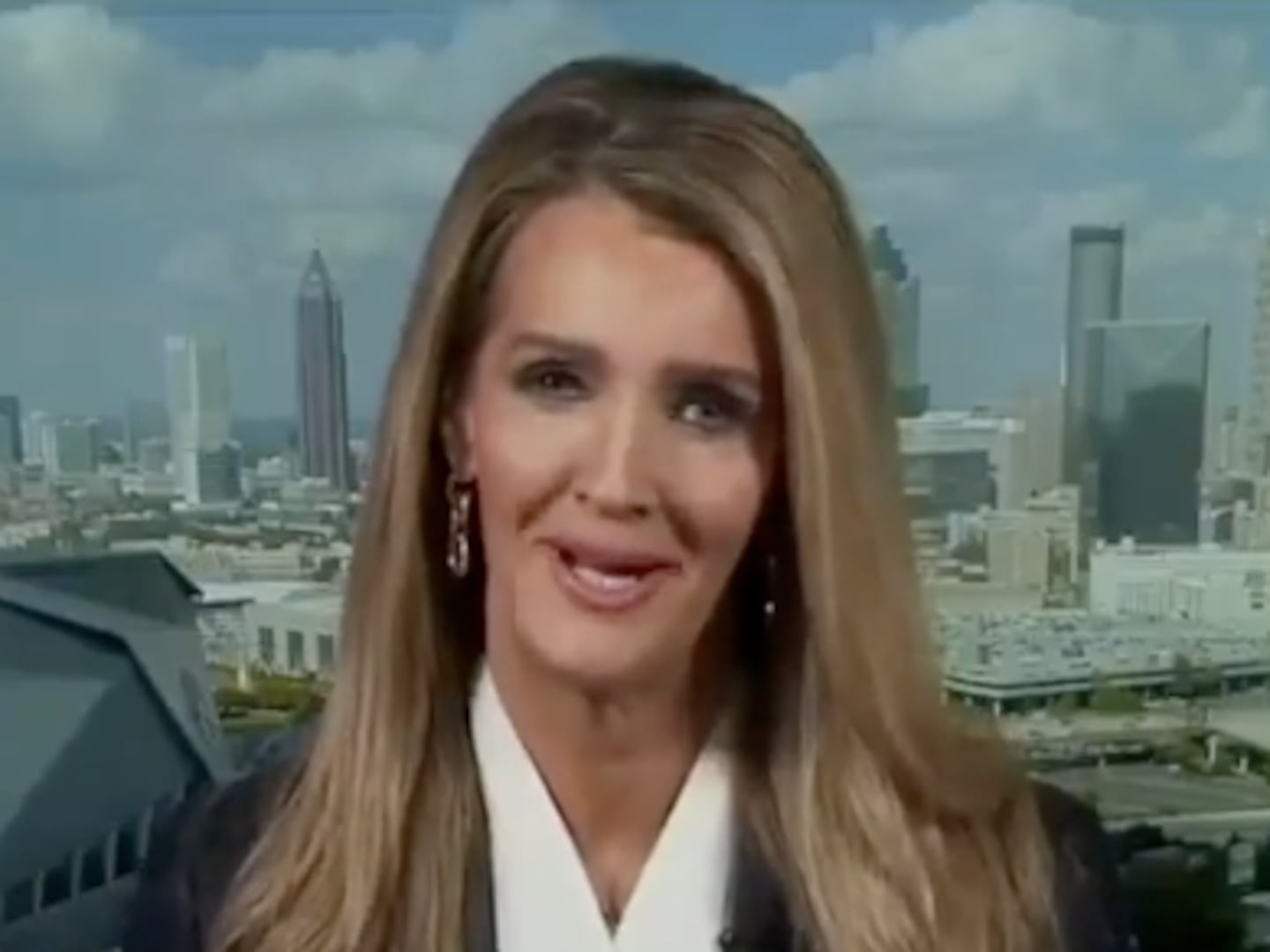Could Ted Cruz, Rand Paul, and Marco Rubio be any more naked in their fear and envy of Chris Christie? In the wake of the New Jersey governor’s resounding reelection Tuesday, the three Tea Party senators, visions of 2016 swirling in their fevered brains, raced to take a poke at the man now lauded by many as the GOP’s last, best hope at retaking the White House before next decade.

Such a response is understandable. At a time when the GOP brand has all the appeal of a crap sandwich, Christie is riding high. The media fawn over him (Time’s unfortunate elephant cover notwithstanding), voters in his home state love him more than Springsteen, and the broader American electorate has declared him its top pick for 2016. Christie’s proven blue-state appeal has many in the GOP establishment drooling. And, as an extra dollop of frosting, Christie will take over as head of the Republican Governors Association this month, giving him an even higher profile—not to mention an excuse for zipping around the country schmoozing donors and blowing his own horn. As former Bushie and Beast contributor Mark McKinnon enthuses, “If you could build a perfect test tube candidate for the GOP for 2016 it would look a lot like Chris Christie.”
Still, the sniping senators are correct: The governor is by no means a shoo-in, for plenty of reasons that have been enumerated plenty of times.
But even if Christie winds up the Rudy Giuliani of 2016, Cruz & Co. shouldn’t get too jazzed. While not all Republicans are feeling the Christie love, a big chunk of party elders, both inside and outside the Beltway, are convinced that the next nominee will not—must not—come from Congress. And they are not shy about sharing that conviction. As veteran strategist John Feehery puts it, “I think it’s a complete fantasy to believe that someone in any way attached to the United States Senate or the House can” prevail in 2016.
That isn’t just because the current troupe of congressional clowns is more reviled than Chris Brown and more dysfunctional than Lindsay Lohan—though that certainly plays into it. “This Congress has not instilled a helluva lot of confidence in the party,” says longtime consultant Mark Corallo. More than that, “Republicans like to nominate a guy with executive experience,” he adds. “We want somebody who’s actually made budgets and cut taxes and dealt with law enforcement and legislatures and made decisions. When you’re a member of Congress, you do a lot of talking. When you are a governor, you have to stop people from talking and make decisions.” Particularly after suffering through the past several years of incompetence and gridlock, he says, “There is no way that Republicans are going to nominate somebody who doesn’t have executive experience.”
Feehery is more succinct: “It’s going to be a governor—or Jeb.”
A governor or Jeb Bush—who is, of course, an ex-governor. That pretty much sums up what many party players are saying these days. (Sorry, Santorum.) And while it is, obviously, early enough in the game that anything is possible, a handful of contenders are consistently popping up on people’s lists, including Christie, Jeb, Wisconsin’s Scott Walker, Ohio’s John Kasich, and Indiana’s Mike Pence. Poor Bobby Jindal still gets mentioned more often than not, though usually with a tone of pity and the caveat that he’ll need a massive image overhaul. (“He’s barely getting out of Louisiana alive,” sniffs Feehery, referencing the governor’s deep unpopularity at home. “They’re happy he’s running for president just to get him out of the state.”) And while New Mexico’s Susana Martinez is seen as a major up-and-comer, she is considered perhaps another cycle away from being ready for the top of the ticket. “She should be on everyone’s short list for vice president,” says former party chairman Michael Steele.
So what are the pros and cons of the most promising non-Christies?
Let’s start with Kasich, since Ohio is considered the ultimate swing state. In terms of charisma, the guy has all the snap, crackle, and pop of pudding. And his maneuverings to expand Medicaid, coupled with his scolding fellow Republicans for conducting a “war on the poor”, will not endear him to the Obamacare-loathing base. On the other hand, under Kasich, Ohio’s economy has made quite the comeback, from its unemployment rate to its credit rating. His financial experience in both the public sector as House budget chairman—during the Clinton years, he helped produce a surplus—and the private sector as a managing director at Lehman could conceivably cut both ways if Tea Party types want to tar him as another elitist, establishment type. (The party does have a conflicted relationship with all its affluent white guys.) Still, assuming Kasich survives his 2014 reelection race, he easily clears the hurdle of having gotten stuff done. And while his belief in a government safety net could be problematic among some segments of the base, it would serve him well with less ideologically pristine voters. “You need someone who’s got elements of the economic populist message but who doesn’t scare the business community,” says Feehery.
Like Kasich, Walker has a record of achievement to point to in Wisconsin. Admittedly, much of what the nation knows about that record involves the recall fight Walker was put through in the wake of his takedown of the state’s public sector unions. But surviving that recall only burnished Walker’s political rep. And while his state’s economic turnaround isn’t up to Ohio levels, it’s headed in the right direction. Perhaps more notably, Walker has that spark Kasich lacks, and the base loves him, both for his sassiness and his social conservatism. How those qualities would play in a general election is unclear—his aggressive anti-abortion rights record would undoubtedly reignite that whole war-on-women meme—but as with all of these guys, the first hurdle is navigating the treacherous primary waters.
Pence is seen as a longer shot, but a shot nonetheless. The Indiana governor’s business-friendly moves have included not just tax breaks and deregulation but also investment in infrastructure. He has plenty of pizzazz and significant street cred with social conservatives, yet has avoided the reputation of a Bachmann-esque extremist. “He really speaks the language of the evangelical community in a way that is not threatening,” says Feehery. Better still, while Pence was once a member of Congress, he had the good sense to flee and rebrand himself as a heartland governor. Crossfire’s S.E. Cupp and The Daily Caller’s Matt Lewis are especially effusive fans.
Then there’s Jeb. The last name is obviously a handicap, though perhaps not as much now as last cycle. (The present Republican crew does make one nostalgic for even not-so-popular GOP administrations gone by.) His support of comprehensive immigration reform does not sit well with the base, nor does his embrace of Common Core education reform. (Or, as Corallo calls it, “his buddying up with the left on education reform.”) There is also some below-the-radar rumbling that the governor’s wife, Columba, is not ready for prime time. That said, Jeb is widely seen as a grown-up in a party with few of those. He was a very successful, very popular conservative governor in Florida, a key swing state with a large Hispanic population. And even that whole family dynasty thing has its upside. Sure, there’s plenty of Bush fatigue, but the name also helps open up wallets. “There’s always going to be magic with Jeb in this party,” says Corallo. “The money will flow.” Jeb is more conservative than his brother, which would help with the base, but he doesn’t scare business types. And even folks disappointed by his big brother’s presidency could take heart in the fact that, as Feehery notes, “Jeb has always been seen as the smart one.”
And now for all the caveats: It’s still crazy early. There are still midterm elections between now and 2016. Nobody even knows whether all these guys, most notably Bush, are interested in the big chair. (More than one party player puts the odds of his running at less than 50 percent.) Basically, at this point, it’s all one big crapshoot.
All of which is a long way of telling Sens. Cruz, Rubio, and Paul to relax. Take a breath. Don’t worry so much about the Christie hubbub. The governor may be the beau of the ball for now, but there’s no need to get all huffy about it. You guys will have plenty of other people to worry about.






